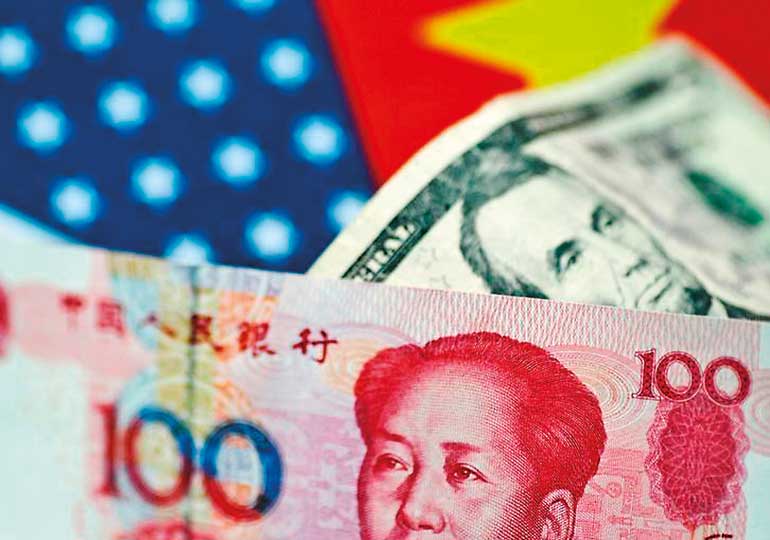Thursday Feb 26, 2026
Thursday Feb 26, 2026
Friday, 15 December 2017 09:05 - - {{hitsCtrl.values.hits}}

Reuters: Asian currencies rose against the dollar on Thursday, as a guarded outlook from the US Federal Reserve on the economy weighed on the greenback following its widely anticipated interest rate rise.
On Wednesday, the Fed raised key short-term rates by a quarter of a percentage point, as expected, and projected three more hikes in both 2018 and 2019, unchanged from the last round of forecasts in September.
That disappointed some investors, who had expected the Fed to raise its interest rate outlook next year, given robust economic growth and lower unemployment levels in the United States.
The dollar index, which tracks the greenback against a basket of six major currencies, was down 0.06% at 93.370, after dipping 0.7% on Wednesday.
“Asian currencies strengthened this morning, largely on the back of what the market perceived as dovish Fed hike,” said Khoon Goh, head of Asia research at ANZ.
“Also with US 10-year Treasury yields falling after the Fed’s announcement, that is seen as positive for portfolio flows into emerging markets including Asia as well.”
The South Korean won and the Thai baht led regional gainers, followed by the Indian rupee and the Malaysian ringgit.
South Korea’s vice finance minister said on Thursday the government will prepare for the possible effects of the Fed’s interest rate increases on markets, although there was little impact on Korean markets.
In the wake of move, China’s central bank nudged its money market interest rates upward, while the Hong Kong Money Authority (HKMA) also raised the base rate through its overnight discount window by 25 basis points.
Hong Kong tracks Fed rate moves because its currency is pegged to the US dollar.
ANZ’s Goh said he doesn’t expect any other central banks to respond directly to the Fed rate hikes to defend their currencies because Asian currencies are actually strengthening and not weakening.
“For next year, we are looking at Malaysia, Korea, the Philippines and Singapore starting to tighten their policy,” said Goh.
“But that is largely in response to better growth rather than responding to the Fed.”
The central banks of Indonesia and Philippines will meet to review rates later in the day and most analysts expect both to stand pat.
Some analysts expect investors will start to book profits at the end of the year following strong gains in emerging Asian currencies.
The South Korean won, Thai baht and the Malaysian ringgit have surged more than 10% this year, while Singapore dollar and Taiwan dollar rose more than 7%.
Investors cut their long positions on most emerging Asian currencies in the last two weeks, a Reuters poll showed, with bullish bets on the Indian rupee hitting the lowest since January.
Asia stocks slightly up after Fed move
Tokyo (Reuters): Asian stocks generally rose on Thursday after the Federal Reserve delivered a much-anticipated interest rate hike, while its caution on inflation tempered expectations for 2018 tightening, weighing on the dollar and Treasury yields.
China’s Central Bank also raised rates, though marginally. While Chinese shares slipped, the wider impact was limited.
The Fed’s less hawkish statements supported MSCI’s broadest index of Asia-Pacific shares outside Japan, but by afternoon its gain had been pared to 0.15%.
Spreadbetters expected Britain’s FTSE to open 0.2% lower, Germany’s DAX to start 0.3% off and France’s CAC to slip 0.15% at the open.